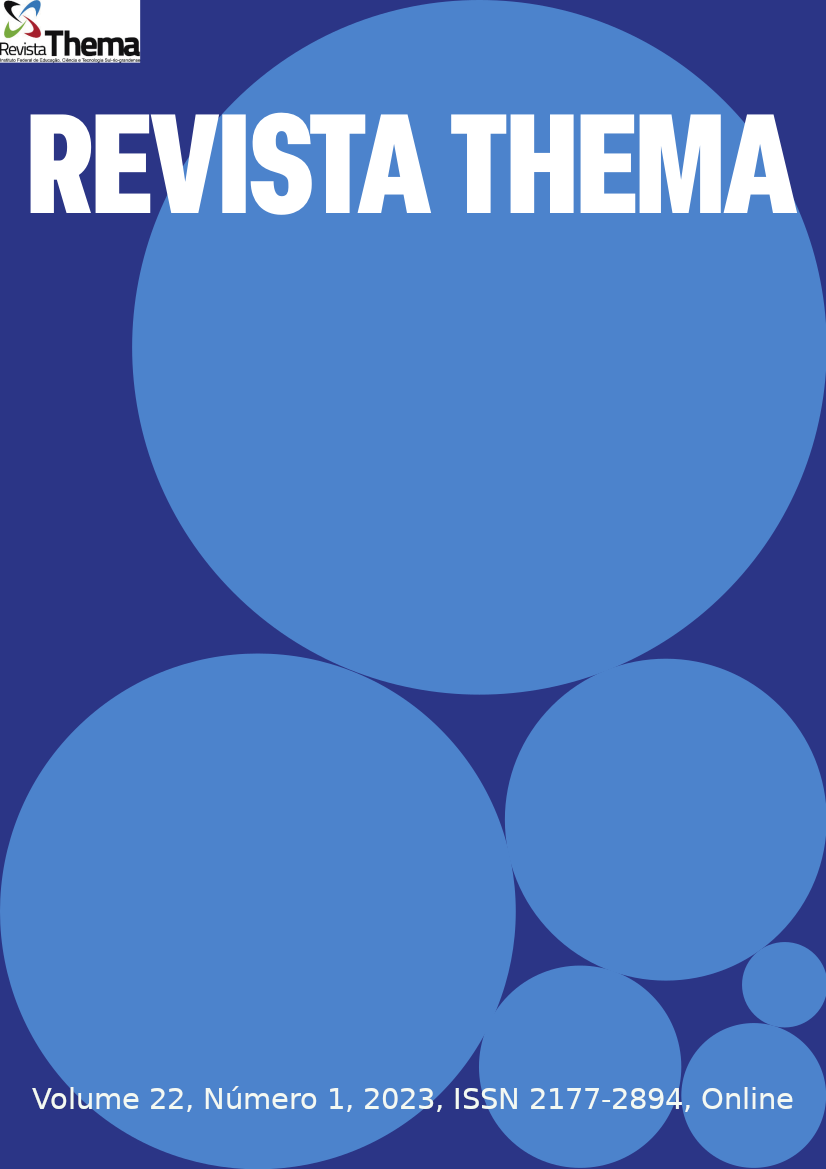Use of Virtual Learning Objects as a Pedagogical Strategy in Teaching
an experience with students with intellectual disabilities
DOI:
https://doi.org/10.15536/thema.V22.2023.1-11.1640Keywords:
Technology, VLO, intellectual disabilityAbstract
Considering the inclusion of students with intellectual disabilities in regular education in public schools in Gravataí, this article presents a reflection on the use of Virtual Learning Objects (VLO’s) as a Pedagogical Strategy in the learning development for students with intellectual disabilities regarding literacy, mathematics, and logical thinking. The theoretical foundation of this article is based on authors who address pedagogical practices and the contribution that technology provides for the students' learning process. The work proposal was to choose four Virtual Learning Objects, which contemplate the students' common needs, and the following VLEs were chosen: Participate 2, Ariê 2, Aiello, and finally the RIVED Farm. They are all available for free on the internet and can be installed on a computer and then used without internet. It was found that the technology resource alone was not enough when the VLOs were performed by the students, some of whom need the resource of concrete material.
Downloads
Downloads
Published
How to Cite
Issue
Section
License
O autor responsável pela submissão representa todos os autores do trabalho e, ao enviar o artigo para a revista, está garantindo que tem a permissão de todos para fazê-lo. Da mesma forma, assegura que o artigo não viola direitos autorais e que não há plágio no trabalho. A revista não se responsabiliza pelas opiniões emitidas.
A Revista Thema é de acesso aberto (Open Access), sem que haja a necessidade de pagamentos de taxas, seja para submissão ou processamento dos artigos. A revista adota a definição da Budapest Open Access Initiative (BOAI), ou seja, os usuários possuem o direito de ler, baixar, copiar, distribuir, imprimir, buscar e fazer links diretos para os textos completos dos artigos nela publicados.
Todos os artigos são publicados com a licença Creative Commons Atribuição-NãoComercial 4.0 Internacional. Os autores mantém os direitos autorais sobre suas produções, devendo ser contatados diretamente se houver interesse em uso comercial dos trabalhos.





